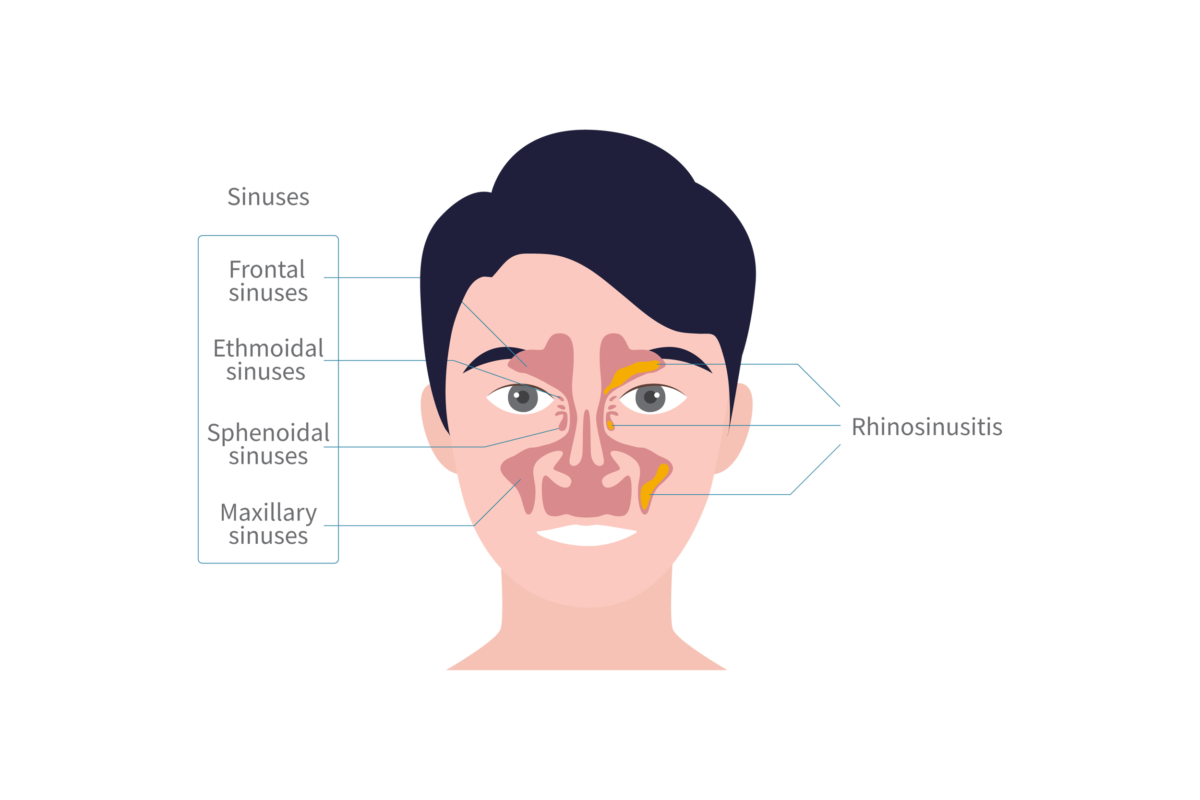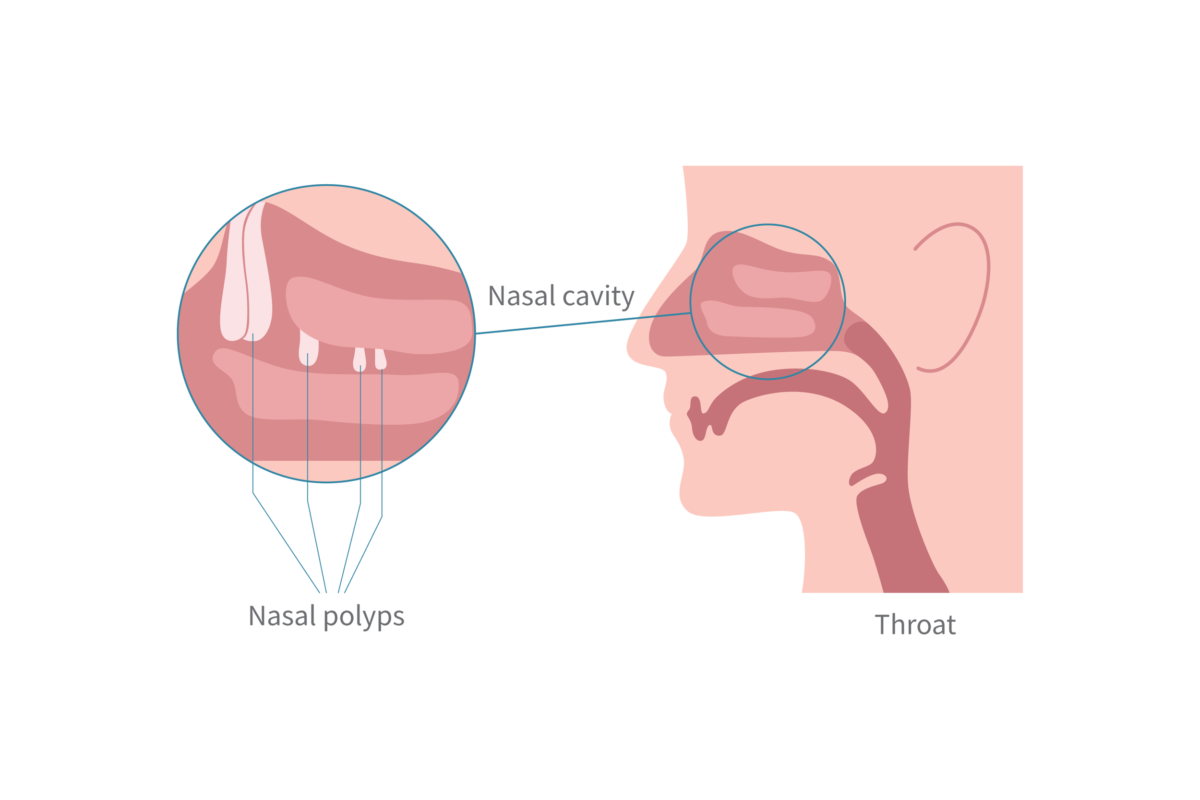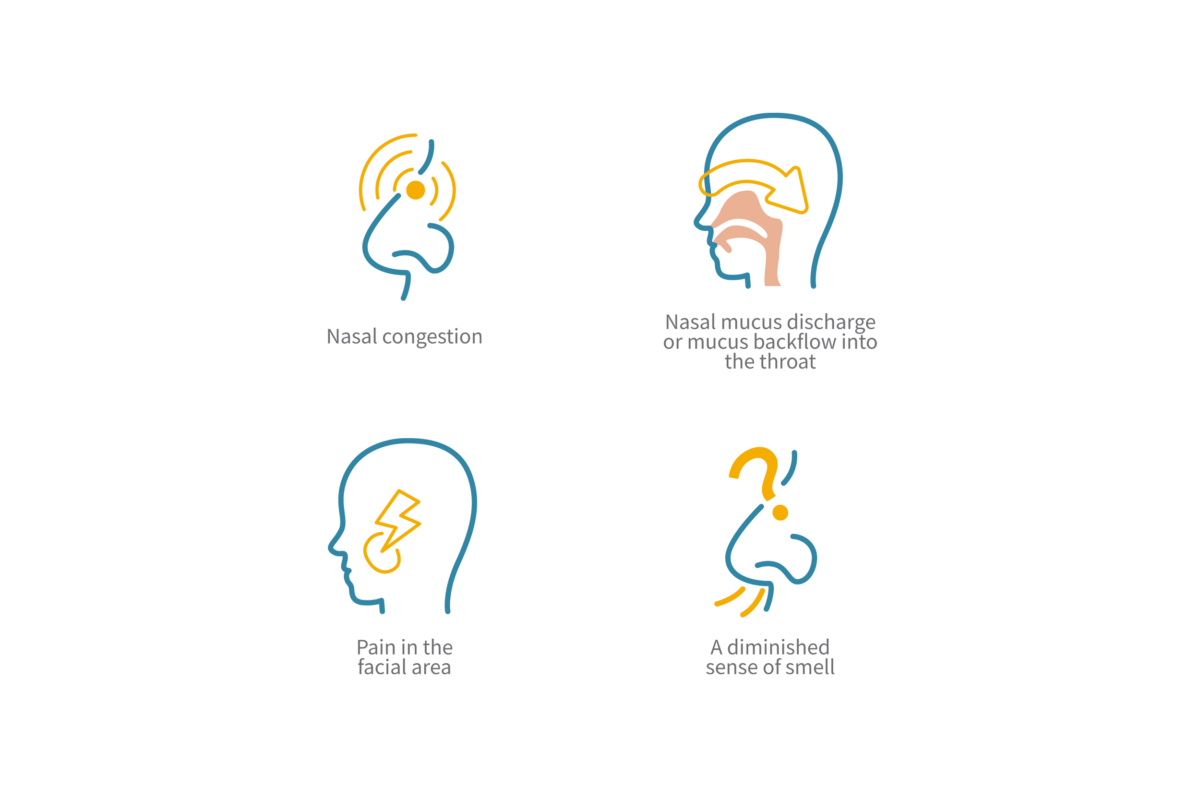Chronic Rhinosinusitis
Chronic Rhinosinusitis
Pathophysiology
Rhinosinusitis is a condition where the lining of the sinuses becomes inflamed. Sinuses are air-filled pockets in your nose, cheeks and forehead that drain the nasal cavity. Nasal polyps, which are non-cancerous outgrowths in your nose, can also occur (simultaneously in patients with rhinosinusitis).
. Chronic rhinosinusitis means that symptoms persist for more than 12 weeks. It is largely thought to be related to a dysregulated immune system against certain irritants, allergens or infections.


Symptoms
When your sinuses become inflamed, it may cause symptoms such as:

Chronic rhinosinusitis and asthma often coexist. These conditions can also exacerbate underlying lung diseases. Symptoms can mimic other forms of rhinitis as well as cancerous growths. It is advised that you should seek medical advice for your symptoms. Your doctor may refer you to an allergist or ENT specialist for further assessment.
How do I know I have chronic rhinosinusitis?
When doctors suspect that you may have chronic rhinosinusitis, they may ask for a detailed medical history. There are several investigations that can be done to confirm the diagnosis and determine the cause:
- Nasal endoscopy: A thin flexible tube with a camera on the end allows doctors to look at your nasal cavity and assess whether the lining of your nasal cavity is inflamed and whether there are any outgrowths i.e., nasal polyps or other lesions that may cause your symptoms. Sometimes, doctors may take a small tissue sample i.e., a biopsy to ascertain the cause.
- Imaging, such as computed tomography (CT scan): Provide detailed images of the nose and sinuses and identify any structural abnormalities.
- Allergy testing: If allergies are suspected to contribute to your chronic rhinosinusitis, doctors may recommend allergy testing to determine triggers.
- Blood tests: Can identify any underlying immune system disorders or other medical conditions.
Treatment
Several treatment options are available but will vary depending on individual cases.
Patients with chronic rhinosinusitis should stop smoking if they smoke. If certain environmental allergens e.g., house dust mites may be a contributing trigger, measures can be adopted to reduce exposure to allergens.
| Treatment | Pros | Cons |
|---|---|---|
| Intranasal steroids:
Considered the first line of treatment and are prescribed to reduce inflammation locally |
|
|
| Oral steroids:
In severe, refractory cases, oral steroids may be used sparingly for short-term relief |
|
|
| Surgery (Functional endoscopic sinus surgery):
Surgery is conventionally the first line of treatment for patients who do not respond well to intranasal steroids |
|
|
| Biologics e.g., Dupilumab:
Biologics are a newer class of medication that are used to treat chronic rhinosinusitis, especially in cases of recurrence after surgery |
|
|
It is important for patients to discuss the risks and benefits of each treatment option with their doctor before making a well-informed decision.
Myths
Can surgery cure chronic rhinosinusitis with nasal polyps?
Surgery can be one of the treatment options for chronic rhinosinusitis with nasal polyps. Studies have shown that the recurrence risk can be up to 10-60%. Some patients may even need revision surgery. In some cases, additional surgical procedures or medical therapies may be necessary to manage recurrent polyps. Chronic rhinosinusitis patients with nasal polyps should work closely with their doctor to develop a personalised treatment plan that addresses their individual needs and minimises the risk of recurrence.

